
For many backyard bird watchers, feeders sit empty during the summer months. But for birders in the know, this is a great time of year to attract birds to your yard. Many migratory species may only visit during the hottest months of the year. Welcome these colorful guests by meeting their specific warm-weather needs, and you’ll have more than the colorful wings of butterflies to enjoy this summer.
What’s On the Menu?
更有趣的一个方面,在喂鸟g the summer is switching up the menu to see what birds you can attract. Many people worry about making birds dependent by offering food in the summer. That’s simply not the case; birds rarely make up more than 10-20% of what they eat from backyard feeders.
Think about it this way – would you go out of your way to buy a pasty old tomato at the store when you have a whole garden bursting with sun-ripened tomatoes in your backyard and farmers’ markets in every town all summer long?
Food is everywhere for wild birds in the summer.
As I write this, I’m watching a hummingbird sipping nectar from the bee balm while completely ignoring my sweetheart’s hummingbird feeder. What you feed birds in the summer is simply another choice on their buffet and a ticket to viewing them in your yard.
1. Provide Clean, Refreshing Water
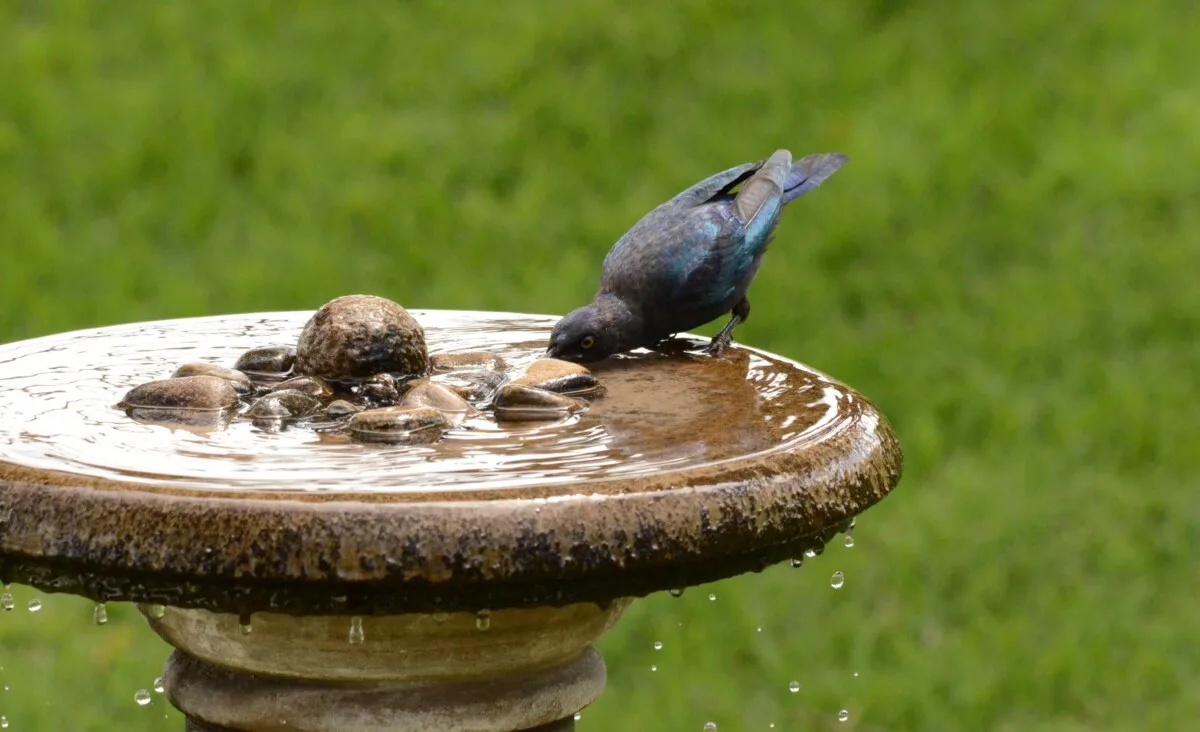
Birds need water for more than just drinking. You’ll find songbirds enjoy a cool dip on hot days, too. But if you want in on these little pool parties, you need to have the right setup.
It goes without saying that clean water is essential, so during the hotter months of the year, you’ll need to change the water more often—at least every two to three days. Not only does this keep local birds happy and healthy, but it alsoprevents mosquito larvae from growingin the water.
Set your bird feeder where it won’t be in direct sunlight all day, as this will cause an algae bloom.
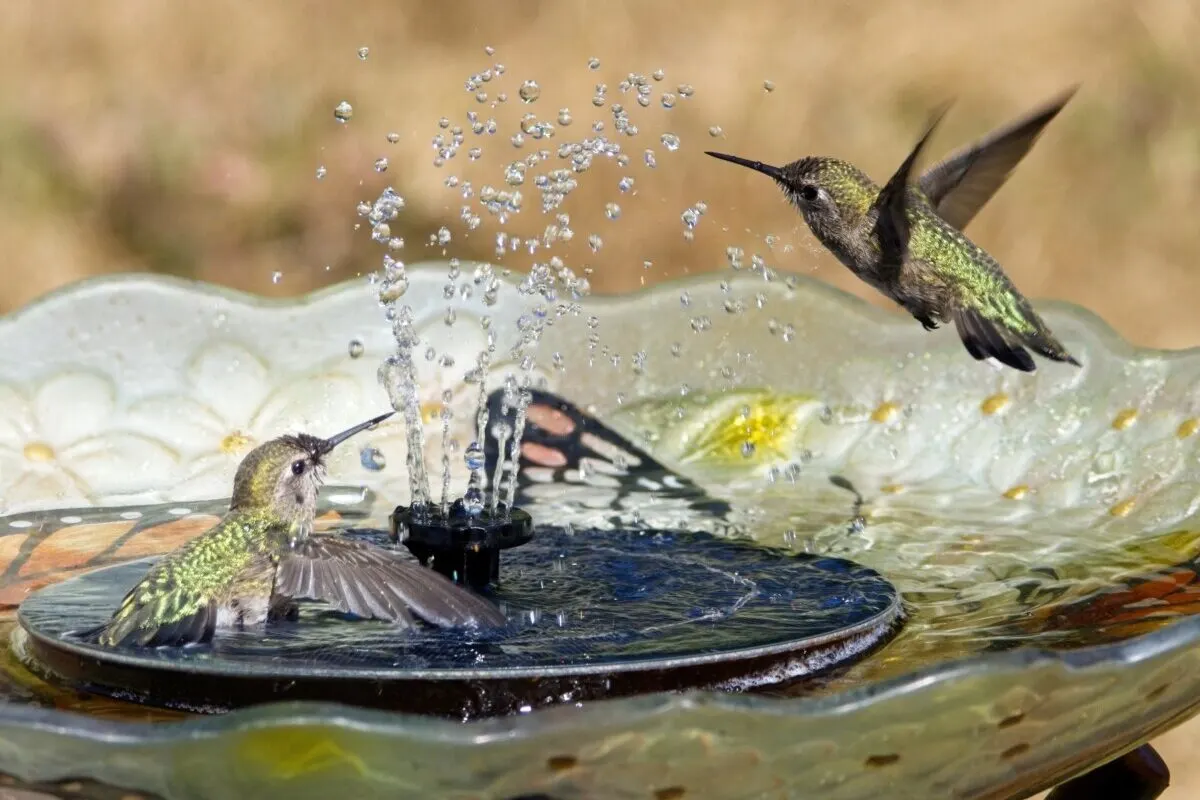
For a birdbath that will really make your bird visitors sing, add aninexpensive solar-powered birdbath fountain. The birds enjoy the light spray of water, the fountain aerates the water, keeping it fresher longer, and the movement prevents mosquitoes from laying eggs in the water.
2. Feed Specific Birds
Hummingbirds
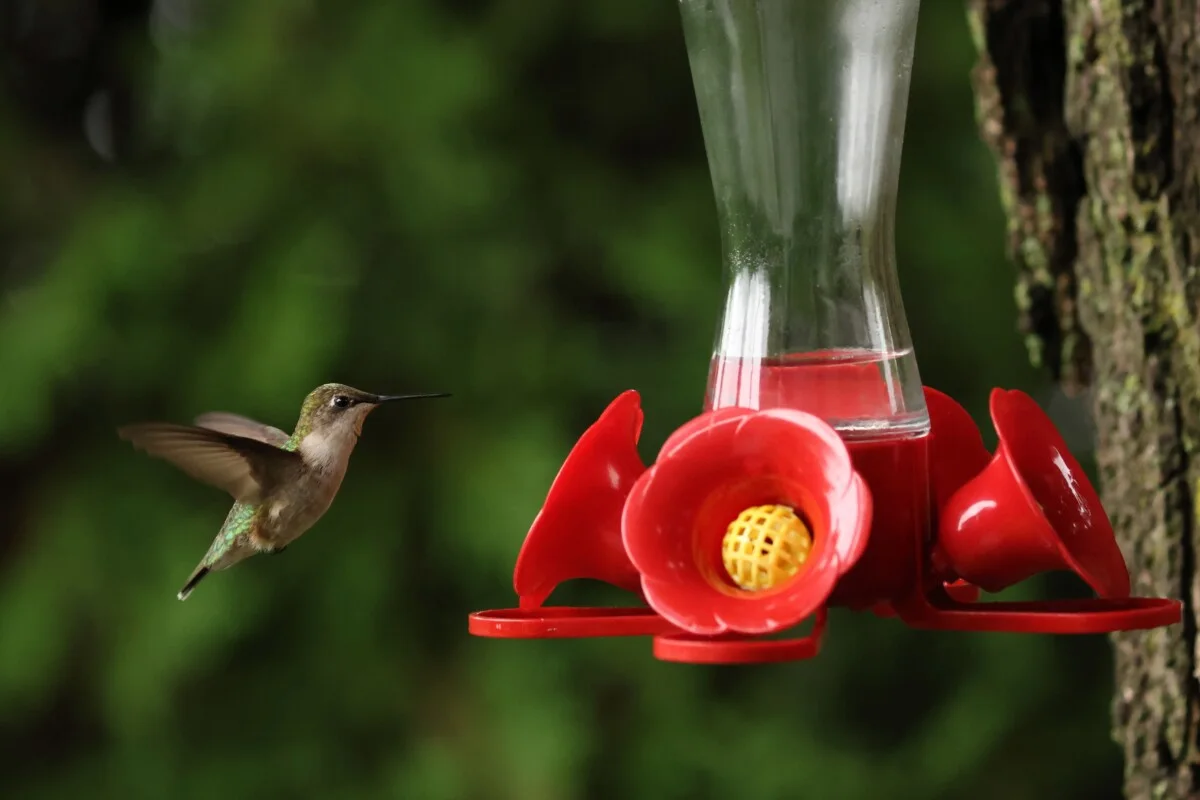
Hummingbirds are always a favorite summertime visitor, and it’s easy enough to attract them to your yard with feeders and flowers alike. Check out ourUltimate Guide to Attracting Hummingbirdsto Your Yard.
Orioles
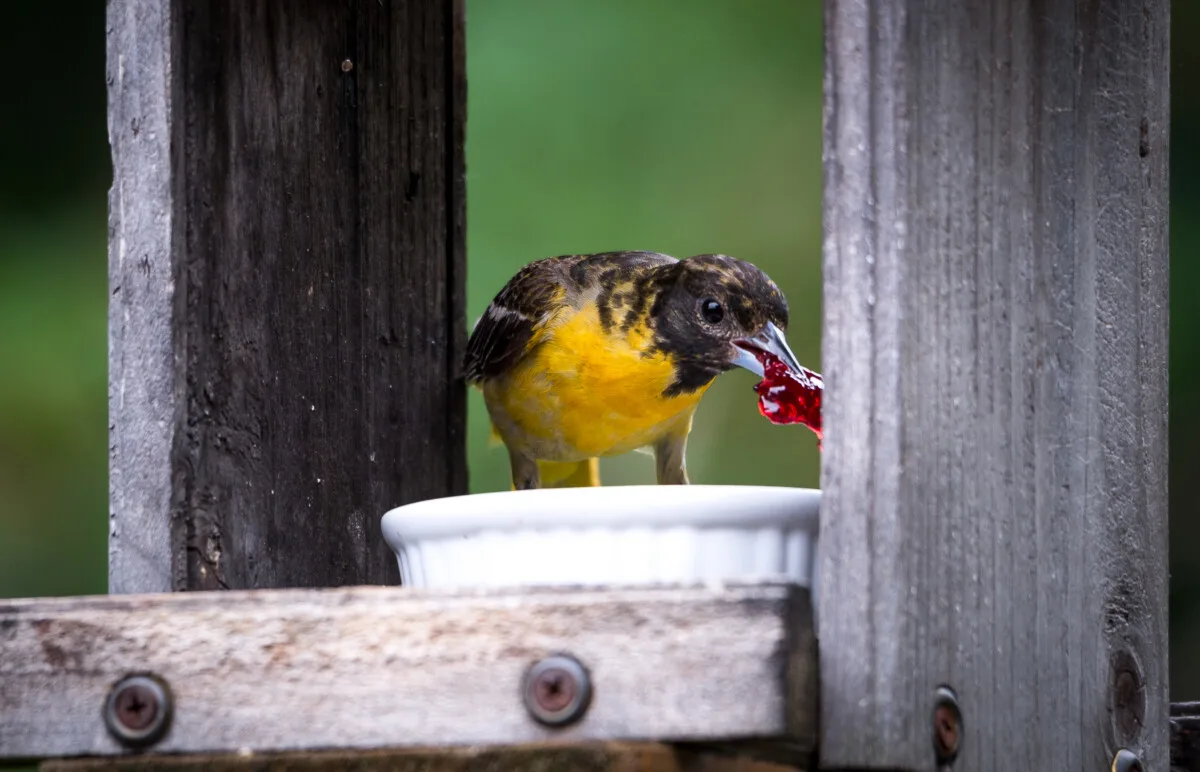
Orioles are a favorite with their flashy orange wings. These birds love all kinds of fruit, probably from all the tropical fruit they eat in the winter in Central America. Place orange halves or slices of orange at your feeders. If fruit is a bit spendy to feed to the birds this time of year, try grape jelly, Orioles love the stuff!
Bluebirds
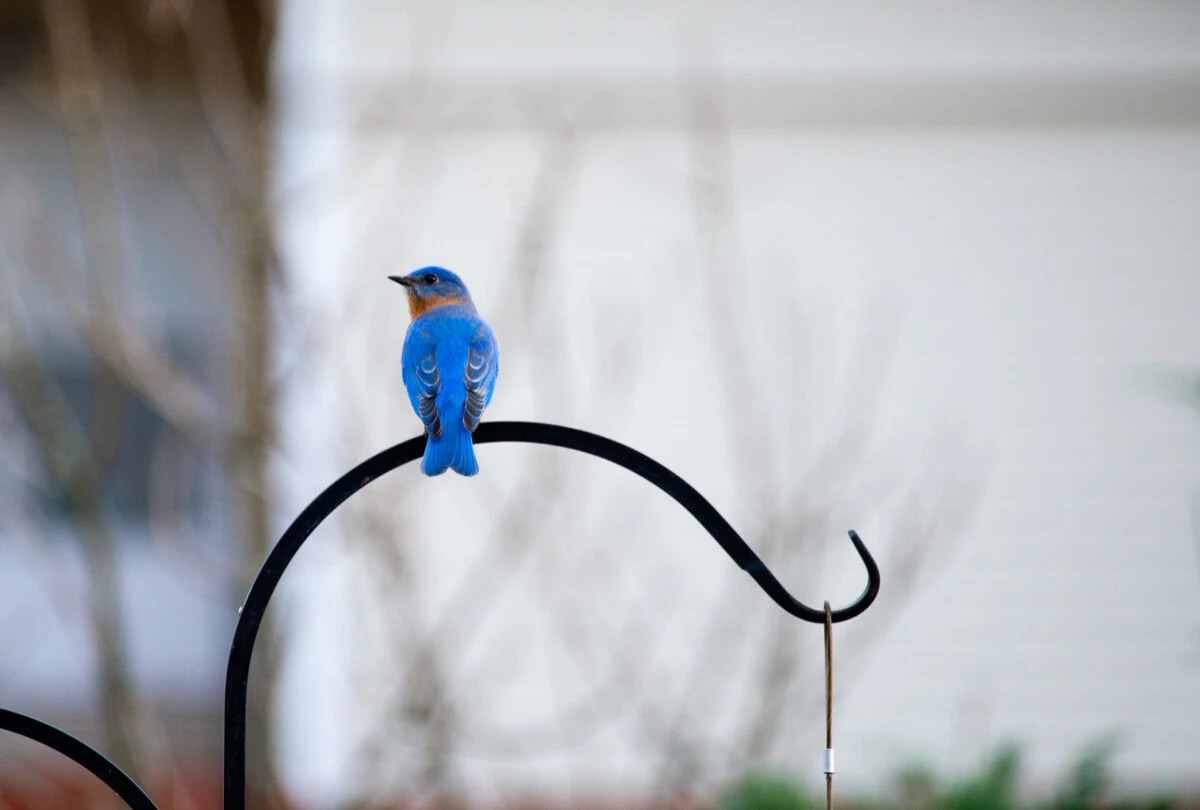
If you want toattract bluebirds, don’t forget the mealworms. These insect-loving birds are happy to find a steady supply of dried worms to snack on.
3. Feed More Variety
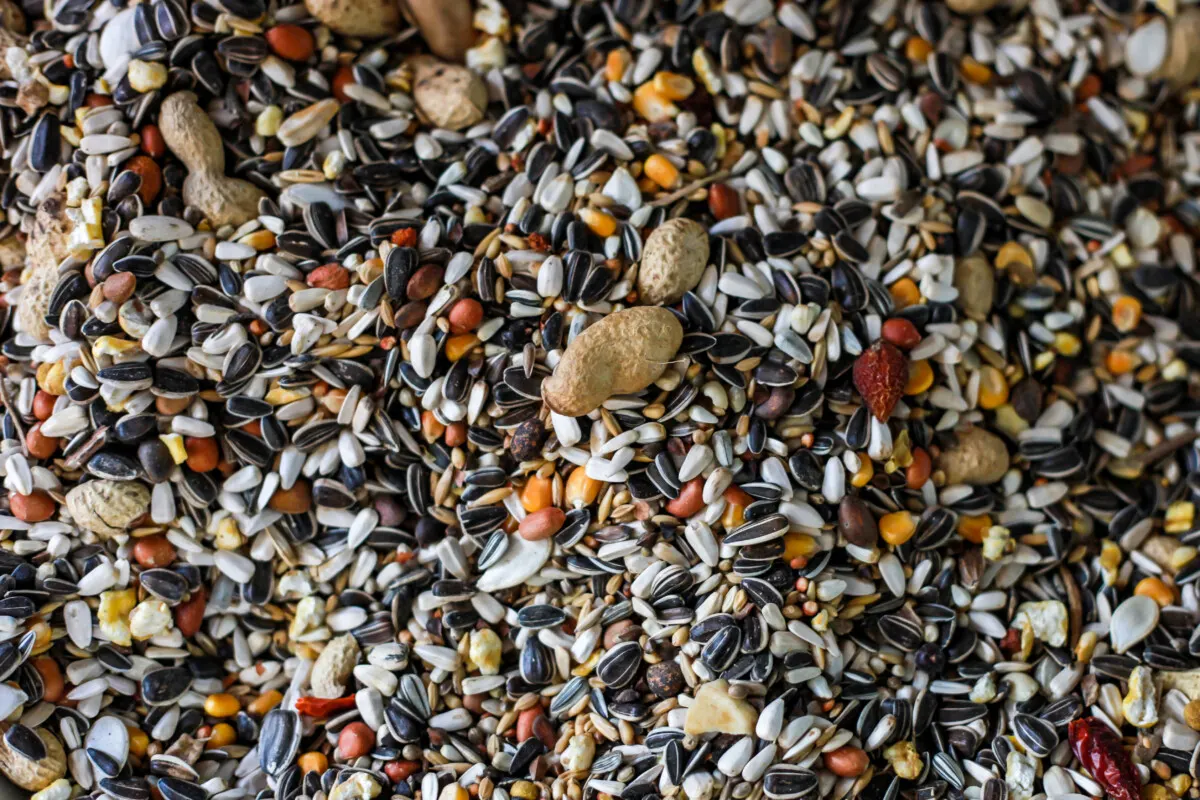
Birds are busy raising families during the warmer months, and others will go through a molting period. All these activities require extra protein and nutrients, so be sure to offer a wide variety of seeds and fruit. You may even be rewarded with a glimpse of babies at the feeder.
4. Feed More Frequently in Less Quantity
Because birds have so much fresh food to forage during the summer, a full bird feeder may go to waste. Don’t fill feeders completely during the summer; instead, keep them at a quarter full. Offering smaller portions during the summer ensures what you put out is eaten before it can spoil.
If you’re offering suet in the summer, consider adding a quarter of a block at a time rather than putting the full block of suet out where it could potentially spoil.
5. Clean Bird Feeders More Often

Even though you may provide less feed during the warmer months, cleaning your bird feeders more frequently is important. Hot temperatures, more rain and humid summer days can cause bird seed to mold or grow bacteria faster. This is even more important with hummingbird feeders, which can grow mold quickly in the hot sun.
I’ve changed our feeder and found sprouted seeds growing after a day or two of warm rainy days.
To prevent the spreading of disease among your feathered visitors and deter the unwanted attraction of vermin, clean your bird feeder at least once a week. Clean it more often if you get a period of warm, rainy days.
6. Move Feeders to the Shade
Placing bird feeders in the shade keeps the seed from spoiling as fast and offers birds a cool respite from the hottest parts of the day. Suet is also appreciated during the warmer months by some birds; just be sure to place it in the shade, as well. Even the no-melt varieties will spoil quicker if they’re out in the sun.
7. Keep Feeders in a Safe Location
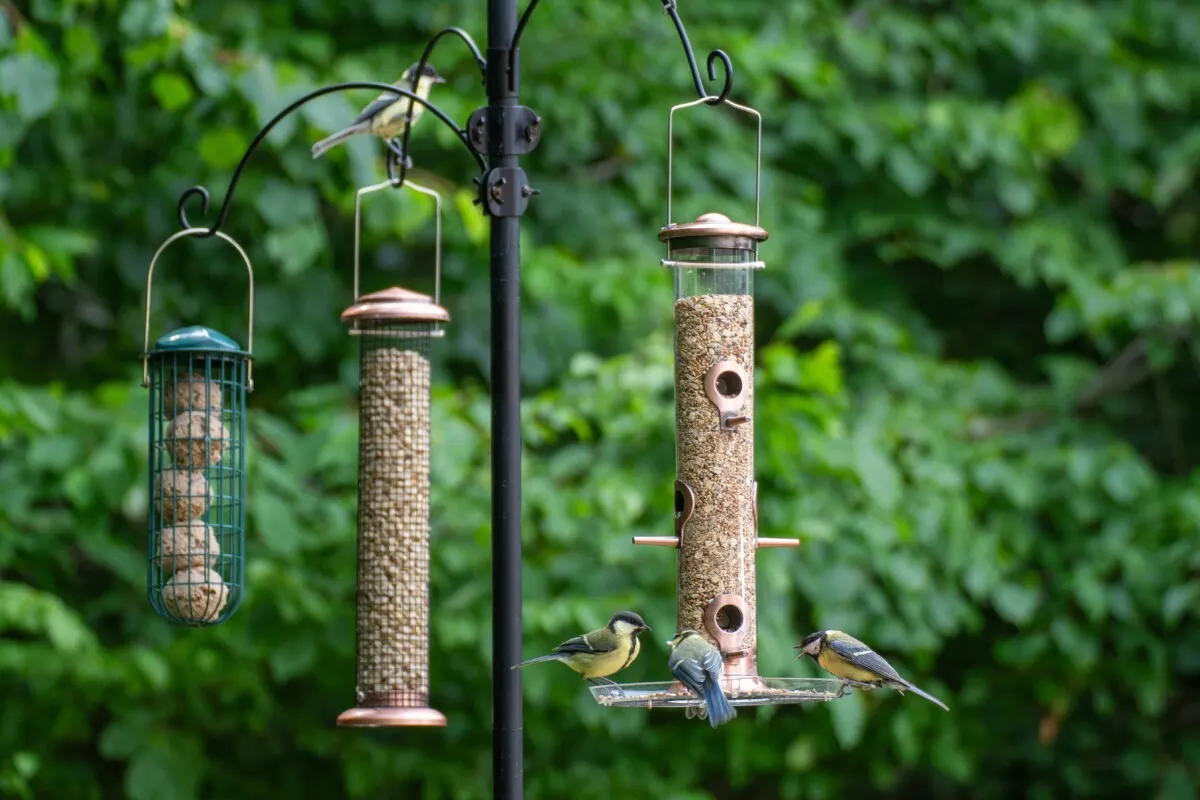
Try to keep feeders somewhere birds will feel safe. As many are raising young, they may not stray too far from their nests. Keeping feeders where cats and dogs can’t get to them will also keep your feathered friends feeling safe and welcome, along with their hatchlings.
8. Consider Moving Feeders Periodically
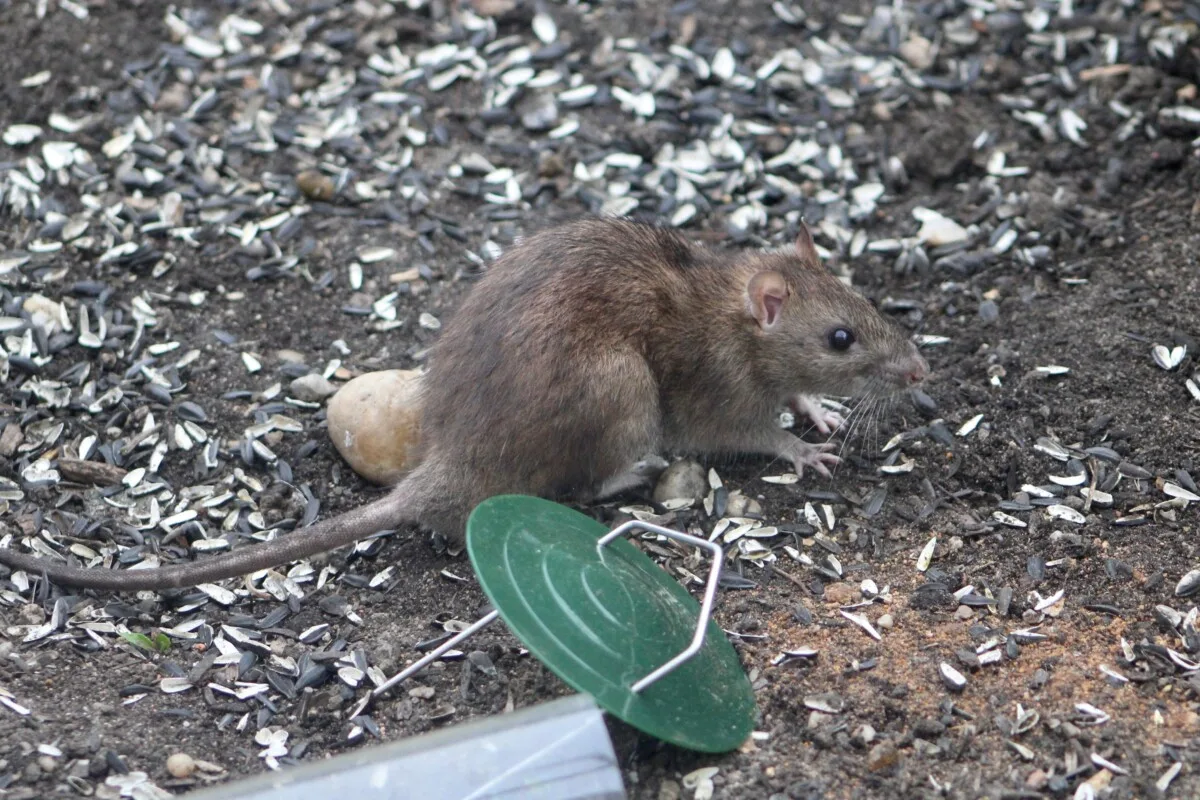
As droppings and empty shells accumulate below feeders in the summer heat, there is a chance it can attract vermin or, worse, breed disease. To ensure the safety of wild birds, consider moving the feeders around your yard every couple of weeks. Don’t move them too far, and keep them within sight of where they were.
9.笑容和忍受

If you live in a location where bears are an issue, you’ve probably woken up to an empty or wrecked feeder before. We had a season when a local bear decided our hummingbird feeders were his personal drinking fountain.
To discourage bears from becoming regular visitors, it may be best to skip feeding birds during the summer and save it for a wintertime activity.
Enjoy the presence of beautiful songbirds all year long by following these tips for warm-weather bird feeding. Consideradding new plantsto your yard to keep birds returning all year through.
